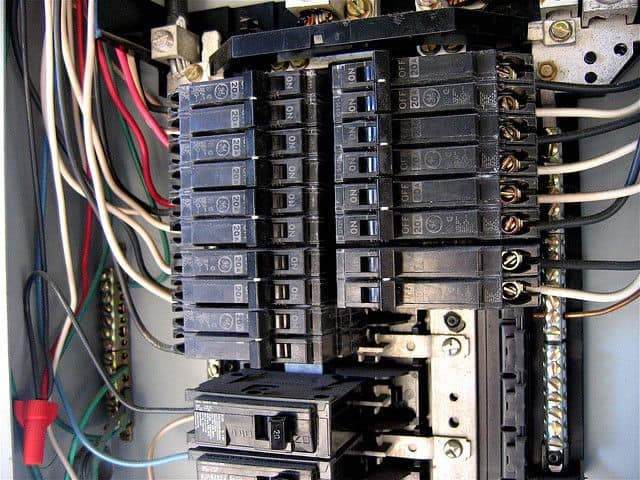How to Choose the Right Circuit Breaker
It’s important to understand the advantages of standard and GFCI circuit breakers so you can choose the right circuit breaker for your Sun City, Florida, home. When choosing a breaker, you also need to consider your current electricity needs and possible additions to your home in the future.
The Difference Between a Fuse and a Circuit Breaker
Fuses and circuit breakers are both safety devices that prevent electrical fires by cutting electricity to an overloaded circuit. A fuse is a strip of metal that breaks apart when too much electricity flows through it. Once a fuse is “blown,” it doesn’t conduct electricity and you need to remove and replace it. Fuses have ratings for how much electricity cause them to blow.
Modern homes use circuit breakers rather than fuses to stop the flow of electricity. Unlike a fuse, a circuit breaker does not need replacement when it is “tripped.” To reset a breaker, flip it back to its original position. Like fuses, circuit breakers have ratings for different electricity flows.
Standard Circuit Breakers
There are two types of standard circuit breakers — single pole and double pole. Called “single pole” because they protect one wire, these are the most common breakers in modern homes. Typically rated for 15-30 amps, they supply electricity for 120-volt appliances and outlets. This includes most devices and small appliances you use in your home.
Double pole breakers are made of two single pole breakers attached with one trip mechanism. Double pole breakers protect two wires and typically supply electricity for large, 240-volt appliances, such as clothes dryers and water heaters. Ratings for double pole breakers can range from 15-200 amps.
If you’re thinking of buying a home with a standard circuit breaker, be aware that you can upgrade from single pole to double pole to accommodate power-hungry appliances. Be sure to have a qualified electrician complete any upgrades to your electrical panel.
GFCI Circuit Breakers
A ground fault circuit interrupter (GFCI) circuit breaker is ideal for areas where water could cause a short circuit. This includes your kitchen and bathroom as well as your basement.
Like a standard circuit breaker, a GFCI breaker cuts power when electricity overloads the wires or there’s a short circuit. Unlike a standard breaker, a GFCI breaker cuts power when electricity flows to a grounded element, which is why potentially wet areas use GFCI circuit breakers.
This type of breaker is not recommended for appliances that need constant power, such as a refrigerator, as you may not notice when the breaker trips.
AFCI Circuit Breakers
An arc fault circuit interrupter (AFCI) circuit breaker cuts power when it detects an “arc” or sudden surge in electricity. This type of circuit breaker is sensitive to the difference between a normal electrical arc and a dangerous arc that can cause an electrical fire.
AFCI breakers have a heightened level of safety protection over a standard circuit breaker because a standard breaker takes time to detect an electricity overload that an AFCI can detect immediately. In new homes, the National Electrical Code (NEC) requires AFCI circuit breakers for specific rooms.
Your Electricity Needs
Before deciding which circuit breakers are best for your home, you should estimate your electricity needs. Examine your appliances and add up the total amp requirements to ensure you’ll have enough circuit breakers for your power needs. Consult an electrician if you’re unsure how to calculate the electrical load for your home.
If you plan to make any renovations or additions, consider the effect on your circuit breakers. For example, installing a dryer or refrigerator to renovate a basement suite requires a dedicated circuit for each large appliance.
A qualified electrician can give you advice about planning future changes to your home to keep it compliant with the NEC.
At Luminous Electric, our services include repairing circuit breakers and replacing electrical panels in the Sun City, Florida, area. Our experienced, licensed electrical technicians strive for customer satisfaction by exceeding customer expectations. Call Luminous Electric for all your electrical needs, whether you’re considering buying an existing home or building new.






